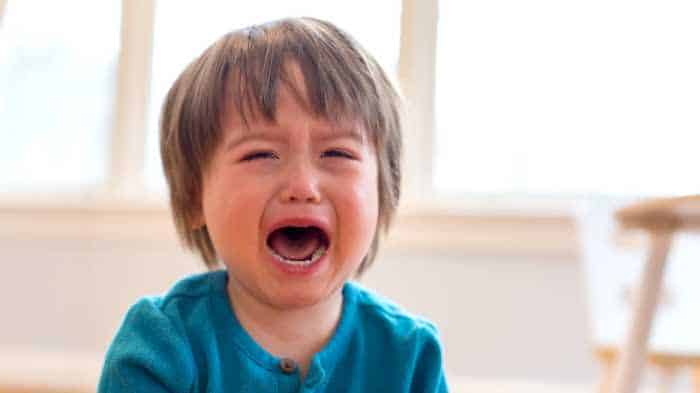Table of Contents
Coping With Behavior Issues In Kids

Thankfully, there are many tips and tricks for parents who want to find ways to help their children manage behavior problems. This article will explore some of the most effective techniques for coping with unwanted behavior in children.
Why Is My Child Acting Out?
If you have children, you’ve probably muttered this question, or a similar one, to yourself a time or two: Why is my child acting out?! Behavior problems in children are not uncommon. Just because your child is showing some unwanted behaviors doesn’t necessarily mean they have a behavioral disorder. Often, when a child acts out or has frequent temper tantrums, they are trying to communicate a need. Unfortunately, they don’t yet have the words or coping skills to express that need appropriately.
Children act out or throw tantrums for many reasons. Perhaps they’re tired, hungry, over-stimulated, overwhelmed by an activity. Maybe they don’t understand what is being asked of them. In most cases, temper tantrums or disruptive behaviors are a way to get the attention they crave from an adult. Kids want parents to recognize their needs and pay attention to them. Children tend to do whatever it takes to get the attention they crave, even if it results in negative attention.
We have to understand what a child’s behavior tells us about how they are processing, engaging, and interacting with their world. And when we better understand that, we can better understand what we can do to help them.
Typical, Age-Appropriate Behavior Difficulties
Most disruptive behavior we see in children are relatively normal and a regular part of emotional development. All humans have emotional issues from time to time, and how we deal with them depends on our level of maturity and the coping skills we’ve developed.
You may see that your child shows behavioral problems in different ways based on the child’s age. Younger children may find it hard to follow rules simply because they don’t understand what is asked of them. Older children may choose not to follow rules because they are challenging authority figures and testing limits.
Here are some common, everyday behavior problems that you may see in children as they grow and develop.
Early Childhood (0-8 Years Old)

Babies and toddlers develop so quickly; it seems they learn something new every minute. They are learning control and autonomy over their bodies. They’re developing language skills at a rapid pace. In addition, they are beginning to recognize relationships between themselves and others. Early childhood is (appropriately) a very self-centered time of a child’s development. And all children develop at different rates, so you can’t compare your child’s behavior to that of other children. However, there are some common behaviors that we tend to see in early childhood that are a normal part of development.
- Your child may cry or throw a tantrum when they don’t get what they want.
- Hitting and biting other kids is sometimes typical behavior in toddlers.
- You may see impulsive or disrespectful behavior as children start to test their boundaries.
- Your child may even begin lying in early childhood.
Adolescence (9-12 Years Old)

- Children may begin to experience social anxiety or anxiety related to school work.
- As adolescents start to go through puberty and experience a rush of new hormones, you may see them burst out in anger at seemingly minor things.
- Your child may struggle to pay attention in school as they emphasize friends and social life over family and school work.
Teenage Years (13-18 Years Old)

- Unlike young children, teenagers are very aware of other people around them and may show unwanted behaviors when they feel like their parents are embarrassing them in public.
- Teenagers may be reluctant to spend time with their families as they develop busy social lives and prefer to be around friends.
- Teenagers often experience mild depression and anxiety related to school, pressure to perform well in sports, or social and romantic relationships.
- As teenagers gain more and more independence from their families, they may begin to defy rules that they don’t see as “fair.”
- Experimenting with drugs and alcohol is not uncommon in the teenage years. However, if you feel that your child may have problems with substance abuse, they may have more serious problems, and early intervention is imperative.
Behavioral Disorders: Attention Deficit Hyperactivity Disorder and Oppositional Defiant Disorder
If you feel that your child is showing signs of abnormal behavior beyond what is typical based on their age and developmental stage, they may be struggling with a behavior disorder that could benefit from the help of a mental health professional. Disruptive behavior disorders like Oppositional Defiant Disorder (ODD), Attention Deficit Hyperactivity Disorder (ADHD), Conduct Disorder, and other mental health conditions can cause children (and adults) to behave aggressively or respond angrily towards people or property. According to the American Psychiatric Association, 8% of children have a diagnosis of ADHD, and 6% of children have a diagnosis of ODD. Conduct Disorder, a more severe form of ODD, is less common.
While disruptive behavior disorders are more serious than normal developmental behavior problems, plenty of treatment options are available. Professional help from a doctor with experience in adolescent psychiatry can help your child cope with their disorder and practice good behavior.
For children with disruptive behavior disorders, a combination of professional help from a mental health professional, medication, and family intervention can work well together to create a treatment plan that will help control the symptoms of these disorders.
How Can I Improve My Child’s Behavior?
Regardless of whether your child has a diagnosed behavioral disorder or if your child’s behavior is a normal part of their development, there are many effective techniques for coping with unwanted behavior in children.
Here are some things that you can do as a parent to help encourage good behavior in your child:
- An excellent first step is to evaluate how you respond when your child is showing unwanted behaviors. Practice reacting calmly, which usually diffuses a tense situation, and model an appropriate response when you feel angry.
- Help your child learn deep breathing or mindfulness techniques. Even young children can practice “belly breathing,” which slows down their heart rate and allows them to control their bodies and emotions better.
- Set boundaries and make sure rules and expectations are clear. If your child is struggling in school, talk with the teacher to ensure consistency both at school and at home with family members in how consequences are delivered.
- Talk with your child frequently. Encourage discussion about what is going well and what isn’t going so well in their lives. Let your child know you are there to support them through social and academic issues at school.
- Don’t be afraid to reach out to a doctor or mental health professional if you suspect that your child is struggling with depression or behavioral disorders. Your child’s doctor may recommend appropriate medication or talk therapy as treatment options for behavioral disorders.
- Consider chiropractic care to help improve your child’s nervous system function and help them focus.
Chiropractic Care For Children With Behavior Problems
Clinical studies have shown chiropractic care as a promising therapeutic approach to dealing with symptoms of ADHD and other behavior problems. A 2019 pilot study conducted by Riphah International University showed that even a single session of chiropractic care improved oculomotor function and reading ability in children with ADHD. While additional studies are still needed, findings suggest that chiropractic care may be an effective way to address root causes of behavioral issues in children.
At ADIO Chiropractic in Madison WI, our pediatric chiropractic care starts with a thorough history of your child’s physical and emotional symptoms so that we can better understand the problems they are struggling with. We’ll not only discuss what behaviors are occurring, but we’ll try to understand the triggers behind those behaviors. When we do that, we can get more answers for parents to help their kids at home.
If you have a child struggling with behavior issues or you feel that they may have a behavioral disorder, reach out to us, and we would love to answer any questions you may have regarding how chiropractic care can help. We offer chiropractic care for the whole family, and we can help your child with issues ranging from ADHD, ODD, anxiety, depression, bedwetting, and more.


